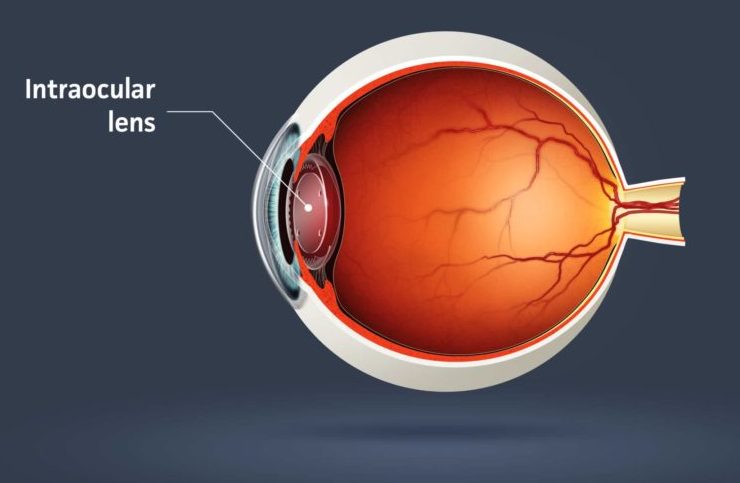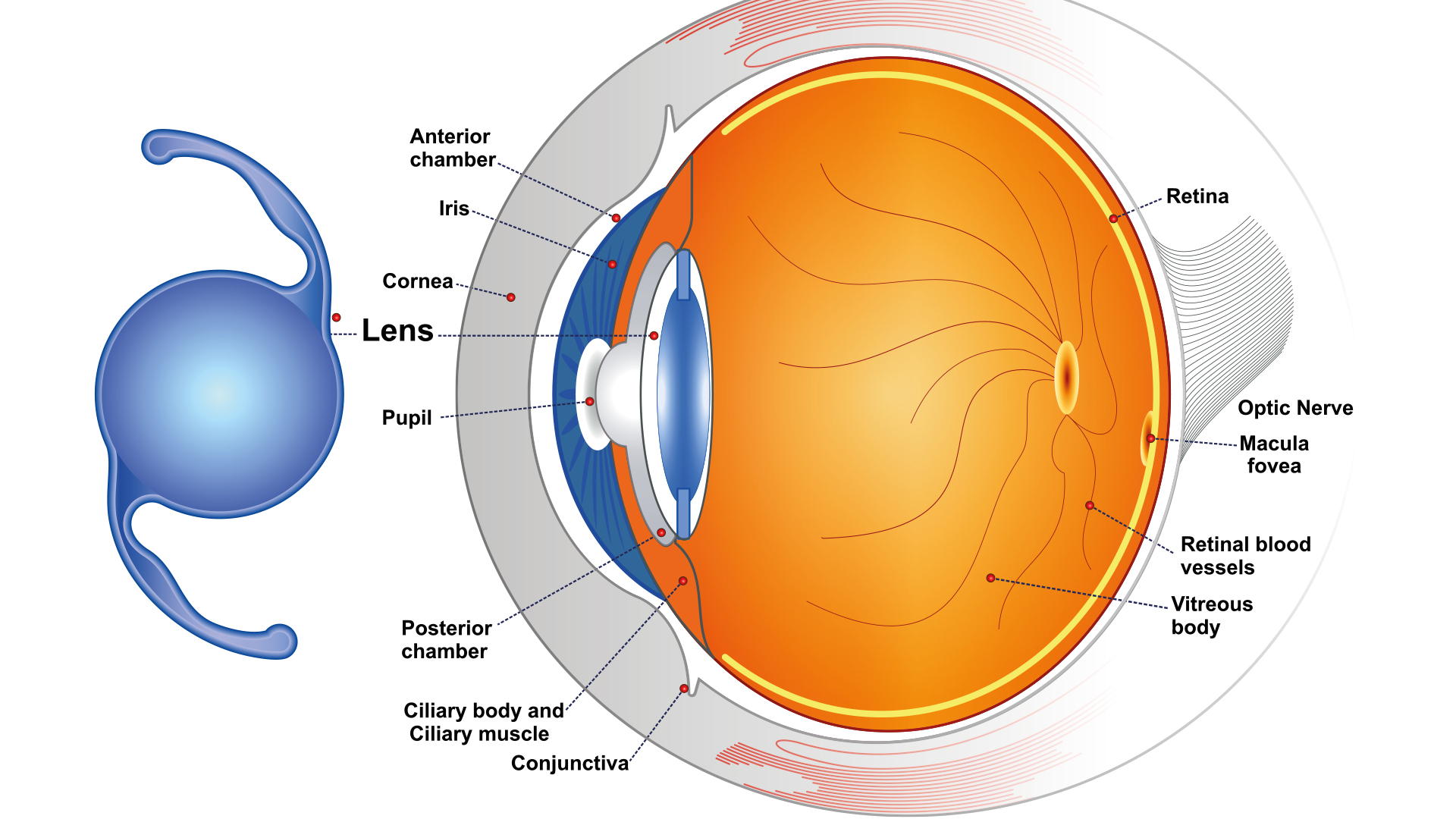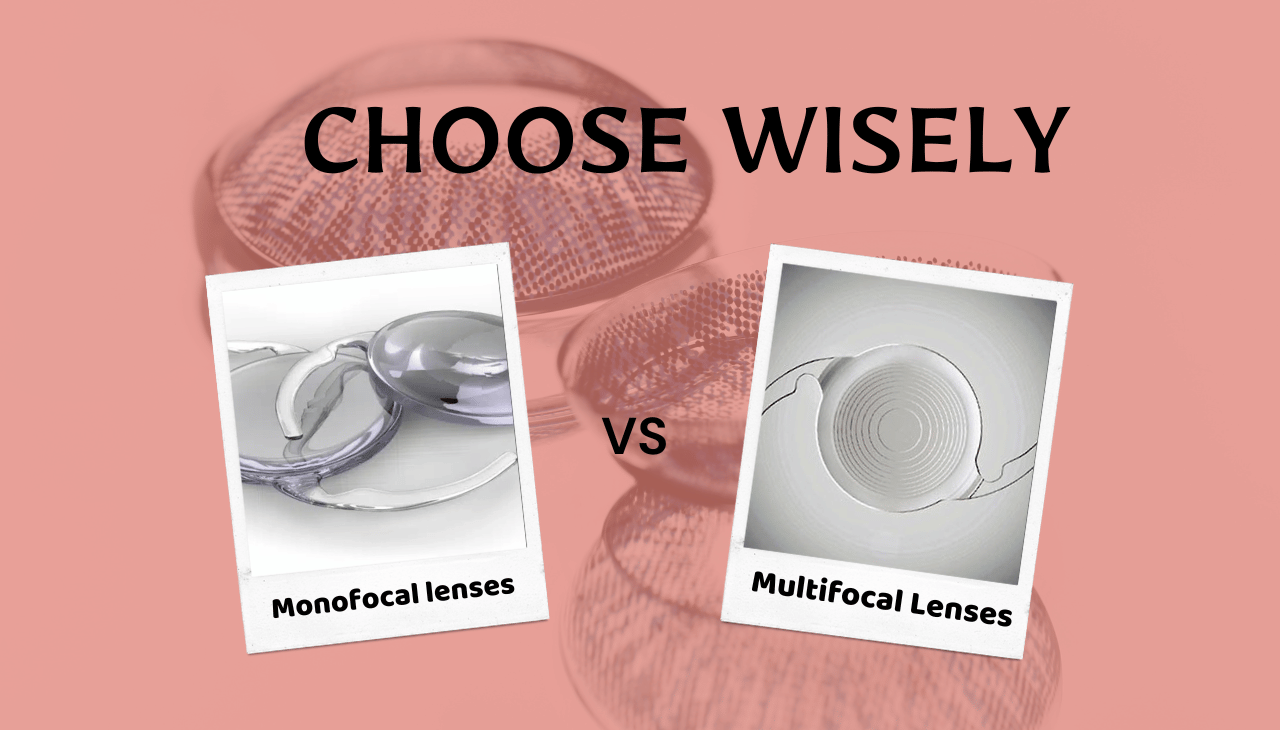Introduction
Our eyes play a crucial role in our daily lives, and when vision problems arise, choosing the right lens for vision correction is essential. For individuals undergoing cataract surgery or those needing vision correction, the choice between monofocal and multifocal lenses can be overwhelming. Understanding the differences between these lenses can help make an informed decision that best suits your lifestyle and vision needs. In this blog, we’ll explore what monofocal and multifocal lenses are, their advantages and drawbacks, and how to decide which is right for you.
Understanding Monofocal and Multifocal Lenses
What are Monofocal Lenses?

Monofocal lenses are designed to provide clear vision at a single distance—either near, intermediate, or far. These lenses are the most commonly used option for cataract surgery patients. Typically, patients opt for distance vision correction and use reading glasses for near tasks.
Key Features:
- Sharp vision at a single focal point
- Requires additional glasses for other distances
- Less expensive compared to multifocal lenses
- Reduced risk of glare and halos around lights
What are Multifocal Lenses?

Multifocal lenses, on the other hand, are designed to provide clear vision at multiple distances—near, intermediate, and far. These lenses reduce dependency on glasses, making them a popular choice for individuals who want greater visual freedom.
Key Features:
- Corrects vision at multiple distances
- Reduces dependence on glasses
- May cause mild visual disturbances like glare or halos
- Higher cost compared to monofocal lenses
Choosing the Right Lens: Factors to Consider
1. Lifestyle and Daily Activities
- If you engage in activities requiring clear vision at various distances, such as driving, reading, or working on a computer, multifocal lenses may be a better choice.
- If you primarily need clear distance vision and don’t mind wearing reading glasses, monofocal lenses could be the preferred option.
2. Cost Considerations
- Monofocal lenses are usually covered by insurance and are the more affordable option.
- Multifocal lenses, being a premium option, may require out-of-pocket expenses.
3. Adaptability and Comfort
- Monofocal lenses have fewer side effects, such as glare and halos, making them easier to adapt to.
- Multifocal lenses may take some time to adjust to, but they provide greater visual independence over time.
Expert Recommendations
If you’re unsure which lens is best for you, consulting an experienced ophthalmologist is crucial. A thorough eye examination, combined with an understanding of your lifestyle and visual expectations, will help determine the best choice.
Consultation at Laxmi Eye Hospital
Laxmi Eye Hospital is one of the largest chains of eye hospitals in Mumbai, known for over 30 years of excellence in eye care. With experienced doctors and a commitment to transparency in treatment, Laxmi Eye Hospital provides best-in-class diagnostic and sophisticated eye care treatments at multiple locations, including Panvel, Kharghar, Kamothe, and Dombivli.
Laxmi Eye Hospital specializes in a wide range of eye care services. These include specs removal procedures such as Bladeless LASIK, ICL, IPCL, and Contoura Vision LASIK. The hospital is also highly experienced in cataract surgery, glaucoma management, diabetic eye care, and cornea-related treatments like keratoconus management and eye donation. Additionally, the institute provides advanced retina treatments and pediatric ophthalmology services, ensuring comprehensive eye care for patients of all ages.
For appointments, visit our clinics:
- Laxmi Eye Clinic (Dombivli): SS Business Park, Gharda Circle, Tata Power Company Limited, Dombivli East, Mumbai, Maharashtra 421201
- Laxmi Eye Clinic (Kharghar): Anant CHS, Sector 04, Kharghar, Navi Mumbai, Maharashtra 410210
- Laxmi Eye Hospital & Institute (Panvel): Mulla Hamid Rd, Old Panvel, Navi Mumbai, Maharashtra 410206
- Laxmi Eye Institute (Kamothe): Near ICICI Bank, Kamothe, Navi Mumbai, Maharashtra 410209
FAQs
1. Which lens is better, monofocal or multifocal? Both lenses serve different needs. Monofocal lenses provide clarity at one distance, while multifocal lenses offer vision at multiple distances, reducing the need for glasses.
2. Will I still need glasses after cataract surgery? With monofocal lenses, you may need reading glasses. Multifocal lenses minimize the need for glasses but may not eliminate them completely.
3. Do multifocal lenses cause side effects? Some people experience glare or halos around lights, but most adjust to them over time.
4. Are multifocal lenses covered by insurance? Standard monofocal lenses are usually covered, but multifocal lenses are considered a premium option and may require additional payment.
5. Can I get multifocal lenses if I have astigmatism? Yes, but you may need toric multifocal lenses for optimal results.
6. How long does it take to adjust to multifocal lenses? Most patients adjust within a few weeks, though some may take longer.
7. Are there any age restrictions for these lenses? Generally, adults over 40 with cataracts or presbyopia are suitable candidates.
Conclusion
Choosing between monofocal and multifocal lenses depends on your vision needs, lifestyle, and budget. While monofocal lenses provide clarity at a single distance, multifocal lenses offer greater convenience by reducing dependence on glasses. Consulting an experienced eye specialist, like those at Laxmi Eye Hospital, ensures you make the best choice for your vision health. Book your consultation today to explore the best eye care solutions tailored to your needs.

